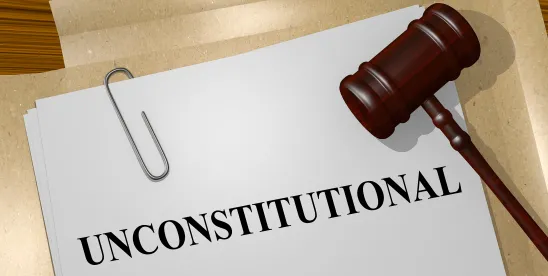In the Supreme Court’s 2022 decision in United States ex rel. Polansky v. Executive Health Resources, Inc., three justices expressed concern that the False Claims Act’s qui tam provisions violate Article II of the Constitution and called for a case presenting that question. Justice Clarence Thomas penned a dissent explaining that private relators wield significant executive authority yet are not appointed as “Officers of the United States” under Article II. Justice Brett Kavanaugh and Justice Amy Coney Barrett, concurring in the main opinion, agreed with Justice Thomas that this constitutional issue should be considered in an appropriate case.
Earlier this year, several defendants in a non-intervened qui tam lawsuit in the Middle District of Florida took up the challenge. The qui tam, styled United States ex rel. Zafirov v. Florida Medical Associates, LLC et al., involves allegations of Medicare Advantage coding fraud. After several years of litigation, the defendants moved for judgment on the pleadings, arguing the relator’s qui tam action was unconstitutional, citing Justice Thomas’s dissent in Polansky.
The defendants’ motion prompted a statement of interest from the United States and participation as amici by the U.S. Chamber of Commerce and the Anti-Fraud Coalition. The Court also asked for supplemental briefs on Founding-era historical evidence regarding federal qui tam enforcement.
On September 30, 2024, Judge Kathryn Kimball Mizelle granted the defendants’ motion, agreeing the relator was unconstitutionally appointed and dismissing her complaint. Judge Mizelle, who clerked for Justice Thomas, held a private FCA relator exercises significant authority that is constitutionally reserved to the executive branch, including the right to bring an enforcement action on behalf of the United States and recover money for the U.S. Treasury. In doing so, a relator chooses which claims to prosecute, which theories to raise, which defendants to sue, and which arguments to make on appeal, resulting in precedent that binds the United States. Yet, a relator is not appointed by the president, a department head, or a court of law under Article II, making the qui tam device unconstitutional.
Judge Mizelle distinguished historical qui tam statutes, which were largely abandoned early in our nation’s history, on the ground that few gave a relator the level of authority the FCA does. And while the FCA itself dates back to the Civil War, the statute largely remained dormant (aside from a flurry of use in the 1930s and 40s) until the 1986 amendments set off a new wave of qui tam litigation.
The ruling is significant for the future of the FCA. As Judge Mizelle’s opinion explains, most FCA actions are brought by relators as opposed to the government itself. If the decision is upheld on appeal, a number of outcomes are possible. If the FCA is to continue as a significant source of revenue generation for the government, the DOJ must devote more resources to bringing FCA actions directly. Congress may also consider amending the FCA’s qui tam provisions to limit relators’ authority to conduct FCA litigation, thereby maintaining the statute as a viable avenue for whistleblowing.
One thing is almost certain, however. FCA defendants across the country will likely raise similar arguments in light of Judge Mizelle’s ruling. Whether in Zafirov or another case, it appears the Supreme Court will get to decide the constitutionality of the FCA’s qui tam provisions sooner rather than later.




 />i
/>i

